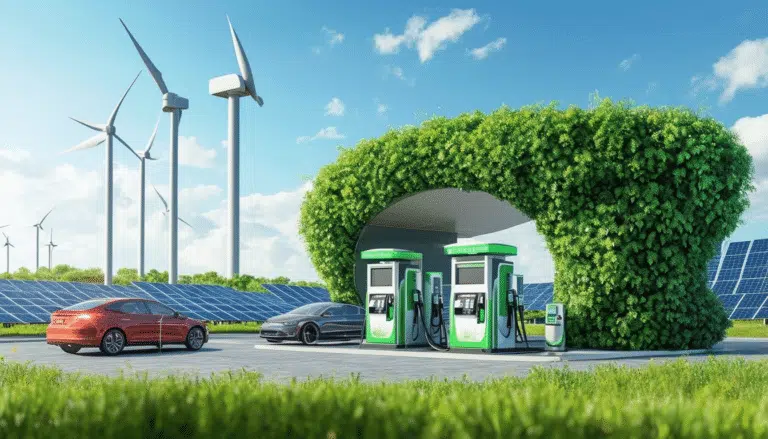Reduction of fuel expenditure and benefits for social welfare
The reduction of fuel expenditure is a crucial goal today, not only for its economic impact but also for its benefits to social welfare. This challenge involves adopting techniques and practices that decrease energy consumption, promoting a more sustainable and efficient environment. From the integration of renewable energies such as solar and hydrogen, to the implementation of sustainable transportation, every action counts. Awareness of the environmental impact of our everyday decisions and the adoption of innovative technologies open the door to a better quality of life for everyone.
The reduction of fuel expenditure is not only an economic objective but also has a significant impact on social welfare. As various strategies and technologies are implemented, it is crucial to understand how these efforts contribute to a more sustainable and equitable future. This article explores the multiple links between reducing fuel consumption and its benefits in various social, economic, and environmental areas.
Incentive systems to promote fuel expenditure reduction
The implementation of incentive systems is an effective strategy to motivate both businesses and individuals to adopt more sustainable practices. These incentives may include subsidies for electric vehicles, tax exemptions for companies using renewable energies, and reward programs for responsible consumption habits. By encouraging these practices, awareness of the importance of reducing fuel expenditure is increased, resulting in a positive impact on society as a whole.
Solar energy and its role in fuel reduction
Solar energy plays a crucial role in decreasing the use of fossil fuels. By harnessing a renewable energy source, it becomes possible to diminish the dependency on costly and polluting fuels. Solar installations in homes and businesses allow users to generate their own electricity, thereby reducing fuel consumption in their daily activities. This not only benefits the environment but also lessens the economic burden on families and businesses, enhancing their social welfare.
The importance of sustainable transportation in expenditure reduction
Sustainable transportation is fundamental to decreasing fuel expenditure. Promoting alternatives such as bicycles, public transportation, and electric vehicles reduces the demand for fossil fuels. Cities that encourage these options not only improve air quality but also create more walkable and accessible communities, resulting in an increase in social welfare. This translates to fewer accidents and more efficient urban mobility.
Economic benefits of fuel expenditure reduction
The economic benefits of reducing fuel expenditure are evident. By decreasing reliance on expensive and volatile fuels, both households and businesses can allocate their resources to other purposes, thereby improving their quality of life. Furthermore, the adoption of clean technologies and sustainable alternatives generates jobs in emerging sectors, fostering a more dynamic and resilient economy that promotes greater social welfare.
Case study on sustainable mobility
A clear example of how sustainable mobility can transform communities is the development of bicycle lanes and efficient public transportation systems in various cities. These initiatives not only facilitate access to jobs, resources, and essential services but also reduce congestion and pollution, contributing to the overall welfare of their inhabitants. Communities that invest in sustainable transportation solutions are models to follow in the fight against climate change.
Impact of artificial intelligence on fuel expenditure reduction
Artificial intelligence is revolutionizing the transportation industry by optimizing routes and improving energy consumption efficiency. Using advanced algorithms, it is possible to predict traffic, manage vehicle fleets, and contribute to fuel expenditure reduction. These technologies not only represent a technological advance but also offer the possibility of a more sustainable and accessible future for everyone.
Reduction of fuel expenditure through sustainable eating habits
The connection between sustainable eating habits and reducing fuel expenditure is less evident but equally important. Adopting diets based on local and seasonal foods means less transportation and, therefore, less fuel consumption. At the same time, these choices can result in a healthier and more varied diet, thereby increasing social welfare.
The role of the community in reducing fuel expenditure
Community participation is essential for reducing fuel expenditure. Community initiatives that promote carpooling, cycling, and organizing environmental education events foster a collective behavior change. Creating support networks within communities not only results in fuel savings but also strengthens social ties and community cohesion.
Myths about fuel expenditure reduction debunked
There are many myths surrounding fuel expenditure reduction, such as the belief that electric vehicles are too expensive or that energy efficiency is not cost-effective. Debunking these myths is crucial to fostering a change in mindset in society. With the advancement of technologies and awareness-raising efforts, it is demonstrated that investing in sustainable alternatives is not only possible but also brings multiple economic and social benefits in the long run.
Conclusion
The reduction of fuel expenditure is a collective goal that benefits not only the environment but also the economy and, above all, social welfare. From the adoption of clean technologies to the promotion of sustainable transportation, every small effort counts on this path toward a more sustainable and just future for all. For more information on how to improve efficiency and reduce fuel expenditure, resources on vehicle maintenance, sustainable logistics, and eco-friendly driving can be consulted.
The reduction of fuel expenditure is not only an economic issue but also a fundamental step toward social welfare. Adopting effective strategies to save fuel involves not just resource optimization but also improving the living environment of communities. Initiatives that promote the use of renewable energies, such as solar energy, and the push for sustainable transportation are key tools for achieving this goal.
Moreover, sustainable mobility plays a crucial role in decreasing the consumption of fossil fuels. By facilitating transit through efficient public transportation options and promoting electric vehicles, dependence on limited and expensive resources is reduced. This, in turn, can improve air quality by reducing pollution and its adverse effects on public health.
On the other hand, education on responsible consumption habits allows individuals and communities to understand how their decisions affect not only their personal finances but also the social environment. The environmental awareness fostered through communication campaigns can be a catalyst for transforming consumption patterns, encouraging practices that favor the reduction of fuel expenditure.
The implementation of advanced technologies, such as artificial intelligence to monitor and optimize fuel use, represents an innovative way to maximize efficiency. These developments not only help companies reduce costs but also contribute to a cleaner and healthier environment for everyone.
In summary, the reduction of fuel expenditure is not a resource exclusive to large corporations; it is a social imperative that demands the active participation of all sectors. Collaboration among communities, businesses, and governments is essential to ensure that the benefits are distributed equitably, thus promoting a more sustainable and equitable future for all.




